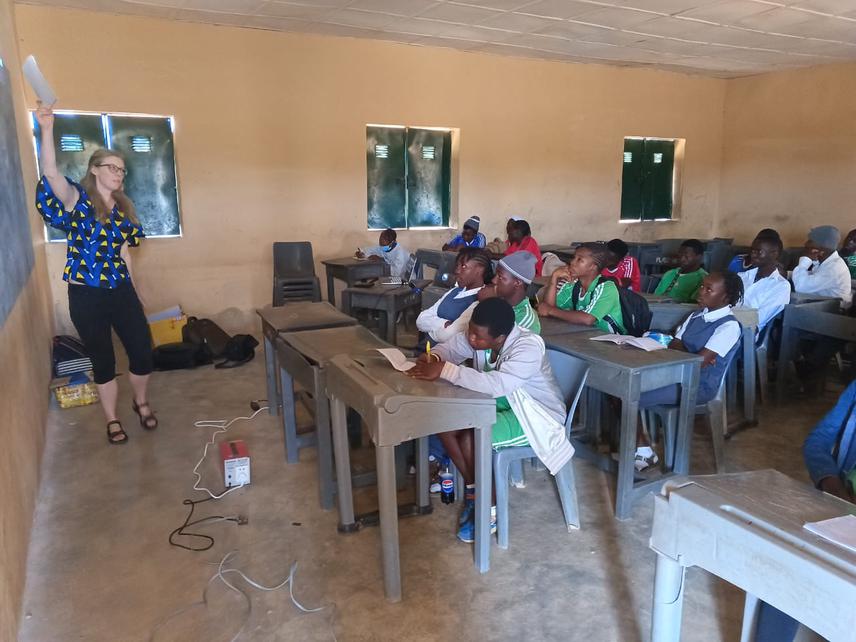Caka Karlsson
Nigeria is experiencing a severe vulture collapse owing majorly to belief-based causes. The vulture decline is alarming considering that vultures play a crucial role in human public health by mitigating and preventing zoonotic disease spread. One of the greatest threats to West Africa’s vulture populations is the trade for traditional medicine and belief systems, a common phenomenon in Nigeria. Traditional medicine practitioners use vulture parts concerning spirits, demons, luck and richness. For instance, by eating various vulture parts alone or with other concoctions, traditional medicine practitioners claimed they could heal people suffering from evil spirits or demons. The traditional belief system could take different forms among different people.

Caka is teaching the students in our pilot study to evaluate our teaching method. ©Michael Manja Williams.
Various conservationists and nature enthusiasts have undertaken several vulture orientations and sensitization programs which targeted adults, intending to halt the declining vulture population trend. However, there seems to be little awareness of the success of such orientation and sensitization programs directly linked to the conservation of vultures. Hence, evaluating the success of an awareness program in addition to evaluating the most time-efficient and cheapest way to conduct awareness-raising programs is of great importance and is the purpose of this project.
This project has two aims. The first aim is to conduct and evaluate the success of a vulture sensitization and awareness program for secondary school children. We aim to educate the children on vulture knowledge and threats posed by the harmful effects of some traditional beliefs on the vulture population. The success of the program will be evaluated by the distribution of pre-, post and memory retention questionnaires.
The second aim is to investigate the spill-over effect of the vulture awareness program on children’s parents and community. Parents are generally busy. Therefore, it can be time-consuming and expensive to convince parents to take time out of their daily activities to participate in a vulture awareness program. Moreover, some parents believe that what their kids learn from school is authentic and they tend to take it seriously. By letting children participate in a vulture sensitisation program, we hypothesize that this newly gained information will reach and alter the parent’s perception of vultures. The objective is to distribute a questionnaire survey among the children’s parents a month after the education program was conducted to investigate this hypothesis.
Header: We conducted a pilot study at Government Secondary School (GSS) Kerker. In this image, we administer pre-questionnaires before our intervention. We discussed the questions with the students to get a better understanding of their perception of the questions. ©Michael Manja Williams.